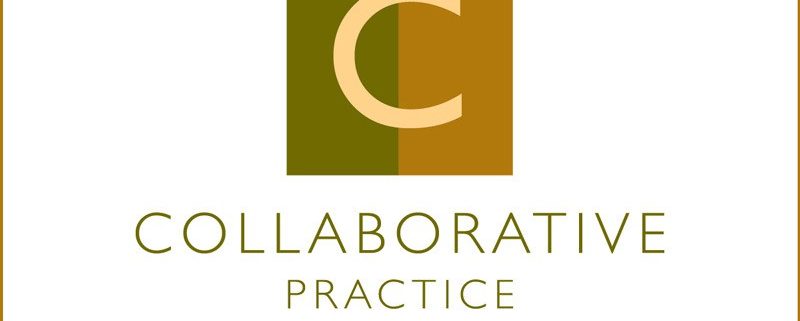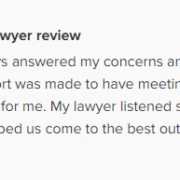IACP Minimum Standards for Collaborative Practice Trainers
The International Academy of Collaborative Professionals (“IACP”) has set Minimum Standards for those who hold themselves out as Collaborative Practice Trainers. Trainers teach other professionals how to offer the public Collaborative Law services.
IACP Minimum Standards for Collaborative Practice Trainers
The Minimum Standards for Collaborative Practice Trainers were approved by the Board in October 2014 and amended February, 2015. In 2017, the Board removed the designation of these standards as “interim.”
 These standards are established with an awareness of the aggregate nature of learning. Skill is acquired from the successive application of education to experience over time and continuing education to enhance skill. The IACP sets the following
These standards are established with an awareness of the aggregate nature of learning. Skill is acquired from the successive application of education to experience over time and continuing education to enhance skill. The IACP sets the following
minimum standards for trainers after January 1, 2015, to conduct a training that meets IACP Minimum Standards for an Introductory Training:
1. Minimum Experience for Trainers:
1.1 A trainer will have completed at least 10 different Collaborative Practice matters of which at least 6 will have been in the interdisciplinary model, accumulating at least 50 hours of practice in Collaborative Practice. For trainings that are focused solely on practice areas other than domestic relations, trainers will have completed at least 8 different Collaborative Practice matters, accumulating at least 50 hours of practice in the Collaborative Practice.
1.2 During the 5 years prior to first conducting trainings, a trainer will have taken primary responsibility for preparing and making educational presentations that total at least 15 hours in presentation time, with 1 presentation lasting no less than 3 hours and each other presentation lasting no less than 45 minutes.
1.3 Prior to conducting trainings, a trainer will have attended a minimum of two Introductory Collaborative Practice trainings. At least one such training will be introductory training in the interdisciplinary model to provide the trainer the experience of observing the principles, methodology and practice of teaching.
2. Minimum Training for Trainers:
2.1 A trainer will have satisfied all training requirements set forth in the Minimum Standards for Collaborative Practitioners.
2.2 A trainer will have completed at least 10 hours of client-centered facilitative conflict resolution training beyond those set forth in the Minimum Standards for Collaborative Practitioners. If a trainer is conducting trainings in the domestic relations area, such training completed will include a substantial amount pertinent to domestic relations dispute resolution.
2.3 A trainer will have a minimum of 9 additional hours of relevant education on advanced Collaborative Practice topics.
3. Licensing/Certification:
A trainer will be licensed or certified for his/her field of practice, and be in good standing and not restricted in practice or subject to any conditions or monitoring of his or her conduct by the licensing board governing the trainer’s field of practice. A trainer will have no public record of discipline of any nature within the last 5 years.
4. IACP Training Standards:
A trainer will be familiar with the Minimum Standards for an Introductory Training and have the skills to conduct that training.
5. Skills Training:
A trainer shall be qualified by education, training, and experience to inform and educate about skills relative to communication, problem-solving, facilitative dispute resolution, mediation, interpersonal relationships, conflict management and resolution, interest-based negotiation, teamwork, and process. A trainer should attend educational courses or workshops that emphasize adult learning principles. A trainer should be able to teach adults through meaningful dialogue and didactic presentations, set up demonstrations, structure role plays, and employ other experiential learning models.
6. Knowledge about Area of Dispute:
A trainer will have an appropriate understanding of the general area to which the dispute relates, including, a recognition that financial decisions may have far-reaching and long-term financial and tax implications and, when training in the domestic relations area, knowledge of the grief process, child development, and the dynamics of the divorcing/restructuring family.
7. Particular Professions:
In addition to the above, those offering training in particular disciplines as part of the Collaborative Practice process will satisfy the following:
7.1 Lawyer:
• A minimum of 5 years in active practice, including 5 years of experience in the particular discipline which is the subject of the training (e.g., 5 years of domestic relations experience for Collaborative Practice trainings dealing with divorce and separation).
7.2 Child Specialist:
• A minimum of 5 years clinical experience with specialty focus on children.
• In-depth understanding of children’s unique issues in domestic relations.
7.3 Financial:
• A minimum of 5 years in financial consulting with significant experience in the financial and tax aspects of the general area to which the dispute relates.
7.4 Divorce Coach:
• A minimum of 5 years of clinical experience focusing on couples and families, and in-depth knowledge of: 1) short-term therapy and coaching models, 2) divorce and the psychosocial impact of divorce on families, and 3) basic elements and guidelines for creating parenting plans.
• In depth knowledge of family dynamics and systems theory and child development.
7.5 Other Professionals:
• A minimum of 5 years experience in their field.
8. Trainers in the Interdisciplinary Model of Collaborative Practice:
The interdisciplinary model of Collaborative Practice for domestic relations matters includes the mental health, financial, and legal disciplines as part of the Collaborative team. In addition to the requirements above, each trainer in the interdisciplinary team model will have knowledge of team interactions and specific issues unique to the interdisciplinary model.
9. Checklist.
To assist potential trainers in assessing whether they meet the requirements, the following checklist is provided as a convenience:
Summary of IACP Trainer Requirements
50 hours of Collaborative Practice work.
10 completed Collaborative matters, 6 of which are interdisciplinary. For trainings focused solely on non-domestic relations areas, 8 completed Collaborative matters.
15 hours of educational presentations in last 5 years of which one is at least 3 hours in duration, and the remainder at least 45 minutes each.
Attend at least 2 Introductory trainings, at least one of which is an Interdisciplinary Introductory Collaborative Practice training.
10 additional hours of facilitative dispute resolution training in addition to the 30 hours required for all Collaborative Practice professionals.
9 hours additional education on relevant advanced Collaborative Practice topics.
A trainer should attend educational courses or workshops that emphasize adult learning principles.
Adam B. Cordover is a Collaborative Lawyer and Trainer who has lead workshops throughout the U.S., Canada, Israel, and France. He is co-chair of the IACP Standards and Ethics Committee and co-author of an American Bar Association book on “Building A Successful Collaborative Family Law Practice.”




